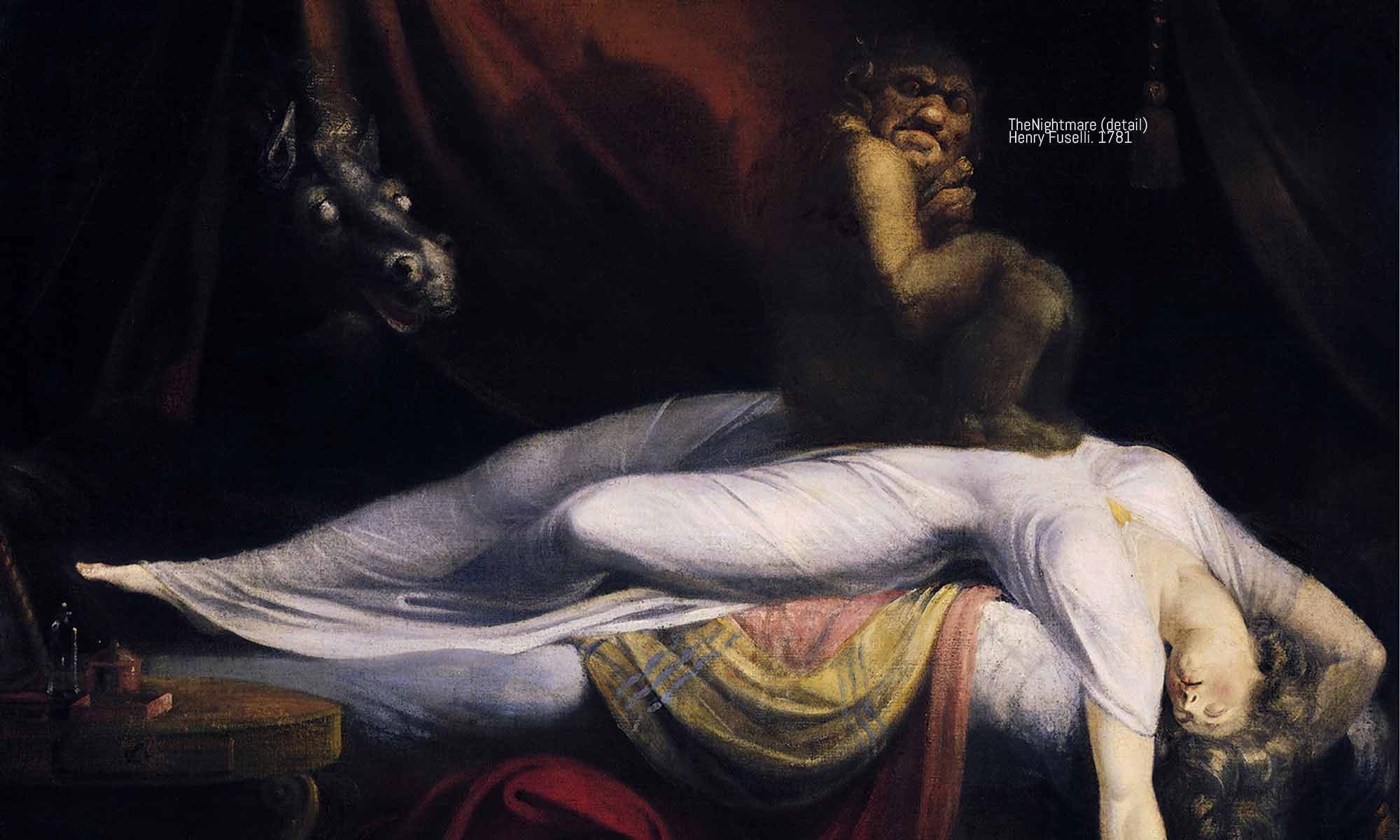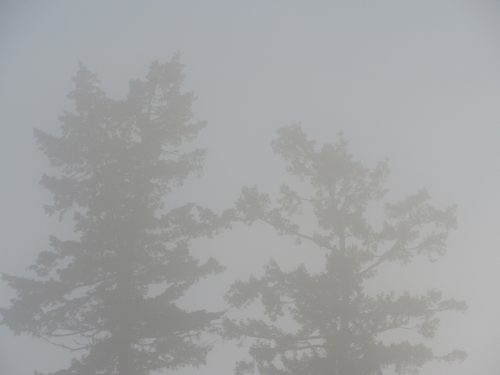 To prepare for a new study of dreams during the 2020 U.S. Presidential election campaign, I am doing a brief review of my previous work in this area, to remind myself of what I have learned so far and what seems most important to investigate next.
To prepare for a new study of dreams during the 2020 U.S. Presidential election campaign, I am doing a brief review of my previous work in this area, to remind myself of what I have learned so far and what seems most important to investigate next.
I have been studying dreams and politics since 1992, and I’ve published several articles and a book documenting my findings up to now. Although I’m not the only scholar looking into these issues, I think it’s fair to say no one else has devoted more research effort towards illuminating the connections between people’s sleep and dream patterns and their political views in waking life. Perhaps everything I have found so far is wrong and misguided; hopefully I have at least clarified some of the right kinds of questions that should be addressed.
Guided by almost thirty years of experience, these are some of the questions I will be asking in 2020:
- In what specific ways are political beliefs, concerns, and issues reflected in dreams?
- How do people relate to politicians as characters in their dreams?
- Do liberals and conservatives sleep and dream differently from each other?
- Can dreams help people think more clearly and creatively about politics?
- Do dreams have special relevance for political progress on environmental issues?
I have several projects in the works aiming at gathering new data to help answer these questions. Many of these projects are collaborations with other researchers, which will hopefully expand the scope of the studies and open up new perspectives on this relatively unexplored area of dreaming experience. More on these projects soon….
Below is a list of my previous publications on this topic, with brief descriptions of the contents and findings.
Attitudes Towards Dreaming: Effects of Socio-Demographic and Religious Variables in an American Sample. (Co-authored with Michael Schredl.) International Journal of Dream Research 12 (1): 75-81.
https://journals.ub.uni-heidelberg.de/index.php/IJoDR/article/view/54314
Using data from a survey of 5,255 American adults, we looked at correlations between people’s attitudes towards dreaming and numerous demographic variables. We found an especially intriguing link between positive attitudes towards dreaming and high levels of concern about global climate change, one of the most prominent political issues in the world today. People who report little or no concern about climate change also tend to have negative attitudes towards dreaming.
Lucrecia the Dreamer: Prophecy, Cognitive Science, and the Spanish Inquisition (Stanford University Press, 2018)
https://www.sup.org/books/title/?id=27061
Lucrecia’s story is the most dramatic and well-documented case in history regarding the intersection of dreaming, politics, and prophecy. She was a young, illiterate woman in 16th century Spain whose prophetic dreams accurately foresaw a national catastrophe, and yet King Philip II ordered the Inquisition to arrest her on charges of heresy and treason. A vivid cautionary tale about what can happen when dreamers speak truth to power.
Three blog posts about Donald Trump, Hillary Clinton, and the 2016 election
https://bulkeley.org/199-dreams-donald-trump/
https://bulkeley.org/dreams-of-hillary-clinton-and-donald-trump/
https://bulkeley.org/dreams-of-the-2016-u-s-presidential-election/
These are reports on dreams I was gathering and analyzing during the 2016 U.S. Presidential campaign. Included are some dream reports grouped around thematic categories: friendliness with a candidate, anticipations, political disagreements, opposition to Trump, openness to Trump, and work & place. The study of 199 dreams specifically about Donald Trump involved a statistical analysis of the word usage in the dreams, and a comparison of the results with other kinds of dreams. Here is my conclusion: “To summarize these findings, it seems that when Trump appears as a character in people’s dreams, he does not disrupt the whole process; people continue dreaming more or less the way they typically do. But he does have a tangible and measurable impact on certain aspects of those dreams. A dream about Donald Trump typically involves fewer women and more talking, touching, and references to money and work. Men seem to become pacified around Trump in their dreams, while women seem to become more instinctually primed.”
A March 2016 blog post about “The Sleep Deprivation Hypothesis”
https://bulkeley.org/donald-trump-the-sleep-deprivation-hypothesis/
A response to media discussions about the then-candidate’s admitted lack of sleep, with psychological speculations about his public behavior in light of empirical research about the effects of chronic sleep deprivation.
Dream Recall and Political Ideology: Results of a Demographic Survey. Dreaming 22(1): 1-9.
https://psycnet.apa.org/record/2011-28147-001
Using data from a survey of 2,992 American adults, the study found a significant difference between political liberals and conservatives on questions of dream recall. People on the political left consistently reported higher recall on all types of dreams than people on the political right.
2008 Election Dreams: Barack Obama, Hillary Clinton, and John McCain
https://bulkeley.org/2008-election-dreams-clinton-obama-mccain/
A collection of blog posts about dreams gathered by Sheli Heti and posted on her metaphysicalpoll.com website. The Obam dreams in particular are notable for their unusually mystical qualities.
2008 Dreams Shed Light on Obama’s Values. San Francisco Chronicle (August 17)
https://www.sfgate.com/opinion/article/Dreams-shed-light-on-Obama-s-values-3272948.php
Reflections on the two fascinating dreams then-candidate Barack Obama described in his memoir Dreams From My Father, with psychological speculations about the future potentials of his Presidency.
American Dreamers: What Dreams Tell Us about the Political Psychology of Conservatives, Liberals, and Everyone Else (Beacon Press, 2008)
https://www.beaconbroadside.com/broadside/2008/04/unravelling-mea.html
This is a book-length study of dreams and politics in American society during 2006-2007. A group of ten people from various parts of the country, six of them political conservatives and four liberals, kept a year-long journal of their dreams, which they discussed with me in relation to their political views and the dire situation of the country at that time (Iraq and Afghanistan wars, housing crisis, impending recession). The book offers a summary of the research I had done on this topic so far.
Sleep and Dream Patterns of Political Liberals and Conservatives. Dreaming 16(3): 223-235.
https://psycnet.apa.org/record/2006-11853-006
Using data from a collection of detailed surveys from 234 American adults (134 liberals, 100 conservatives), several patterns emerged in relation to their sleep and dream behaviors. Here is what I found: “Conservatives slept somewhat more soundly, with fewer remembered dreams. Liberals were more restless in their sleep and had a more active and varied dream life. In contrast to a previous study, liberals reported a somewhat greater proportion of bad dreams and nightmares. Consistent with earlier research, the dreams of conservatives were more mundane, whereas the dreams of liberals were more bizarre.”
Dreaming in Christianity and Islam: Culture, Conflict, and Creativity (co-edited with Kate Adams and Patricia M. Davis) (Rutgers University Press, 2009)
https://www.rutgersuniversitypress.org/dreaming-in-christianity-and-islam/9780813546100
This is an edited book, written in the shadows of 9/11, as an effort to find common ground across religious and national differences. We started the project in the early 2000’s, and it took a long time to pull all the different chapters together. Patricia wrote a brilliant chapter on a significant auditory dream of Martin Luther King, Jr., his “vision in the kitchen” of 1956.
Dreaming of War in Iraq: A Preliminary Report. Sleep and Hypnosis 6(1): 19-28.
http://www.sleepandhypnosis.org/ing/Pdf/d2b0fb2ad2c247cab33ccd64a45d737f.pdf
A study of dreams related to the U.S. invasion of Iraq, which began on March, 19, 2003. The dreams I gathered came from various sources, and I grouped them into several thematic categories: personal symbols, op-ed commentaries, political transformations, empathetic identifications, and fearful anticipations.
The Impact of September 11 on Dreaming. (Co-authored with Tracey L. Kahan.) Consciousness and Cognition 17:1248-1256.
https://www.sciencedirect.com/science/article/pii/S1053810008001141
During the fall quarter of 2001, Prof. Tracey Kahan was teaching a class at Santa Clara University on sleep and dreaming, and she had asked the students to keep a dream journal during the quarter. After the terrorist attack of September 11, 2001 in New York City, Tracey and I engaged in a study of the students’ journals. We found that the 9/11 attack appeared in several people’s dreams, both directly and indirectly. We also found that on all the basic measures of people’s cognitive functioning during their dreams, there was no difference between the dreams that did or did not have 9/11-related content. In other words, the terrorist attack impacted what people dreamed about, but not the way they dreamed.
Dream Content and Political Ideology. Dreaming 12(2): 61-78.
https://link.springer.com/article/10.1023/A:1015398822122
I called this a “pilot study,” involving 56 people, divided into four equal groups: liberal males and liberal females, conservative males and conservative females. I had a most recent dream from each person, and a content analysis of the dreams suggested an intriguing difference regarding political ideology: “people on the political right had more nightmares, more dreams in which they lacked personal power, and a greater frequency of “lifelike” dreams; people on the political left had fewer nightmares, more dreams in which they had personal power, and a greater frequency of good fortunes and bizarre elements in their dreams. These findings have plausible correlations to certain features of the political ideologies of people on the left and the right, and merit future investigation in larger-scale studies.”
It’s All Just a Bad Dream. San Francisco Chronicle (December 6): A27.
https://www.sfgate.com/opinion/openforum/article/It-s-All-Just-a-Bad-Dream-2723578.php
An Op-Ed article I wrote for the San Francisco Chronicle about people’s dreams during the agonizing wait to determine who would be the winner of the 2000 U.S. Presidential election, Al Gore or George W. Bush. Most of the dream reports I gathered were nightmares from liberals: “Aliens taking over the Earth and turning all humans into slaves; terrorists attacking the country with biological weapons; the dreamer falling into the ocean and being chased by a hungry shark or losing control of a car and driving off a cliff — these are some of the distressing images that are filling Democratic imaginations.”
Among All These Dreamers: Essays on Dreaming and Modern Society (Editor) (State University of New York Press, 1996)
https://www.sunypress.edu/p-2346-among-all-these-dreamers.aspx
This book gathers the best researchers I could find on the theme of dreams and social justice. Included are chapters on dreams in relation to education, sexual abuse, ecology, crime, race, gender, religion, and cross-cultural conflict. In chapter 10 I present a report on my first direct research project devoted to dreams and politics: “Political Dreaming: Dreams of the 1992 Presidential Election.” The chapter describes several dreams about the 1992 candidates (Ross Perot, George H.W. Bush, Bill Clinton), the debates, the media coverage, voting, and all the fears, hopes, and disappointments surrounding the election. The goal of this project was to prove Calvin Hall wrong in his claim that dreams “have little or nothing to say about current events in the world of affairs” (The Meaning of Dreams, 1966).
Visions of the Night: Dreams, Religion, and Psychology (State University of New York Press, 1999)
https://www.sunypress.edu/p-3023-visions-of-the-night.aspx
The final chapter of this book is titled “Dreaming in Russia, August 1991,” an essay originally published in the Stanford University alumni magazine. It recounts my waking and dreaming experiences at a conference of dream researchers in Moscow, right in the midst of the failed military coup against Mikhail Gorbachev, which precipitated the fall of the Soviet Union.
The Quest for Transformational Experience: Dreams and Environmental Ethics. Environmental Ethics 13(2): 151-163.
https://www.sunypress.edu/p-3023-visions-of-the-night.aspx
One of the first articles I ever published, this also appears as chapter 5 in Visions of the Night. In response to environmental philosophers who point to Western dualistic thinking as a primary source of our society’s mistreatment of nature, I suggest that dreaming is a psychologically innate and highly effective means of stimulating the transformation of dualist thought and the opening of new conscious awareness towards the environment.
Dreaming in a Totalitarian Society: A Reading of Charlotte Beradt’s The Third Reich of Dreams. Dreaming 4(2): 115-126.
https://psycnet.apa.org/buy/1994-43941-001
This was based on a paper I wrote for a graduate seminar at the University of Chicago Divinity School, perhaps in 1988 or 1989. The course was taught by Peter Homans, and it focused on the neo-psychoanalytic theories of D.W. Winnicott and Heinz Kohut. I had been reading The Third Reich of Dreams on my own, and for the final paper of the class I used Winnicott’s ideas about play, transitional space, and the True vs. False Self, to analyze and reflect upon the dreams gathered in Beradt’s book. Here was my core Winnicottian claim: “Dreams are one of the ways that humans, from childhood to adulthood, develop the relationship between their inner psychic reality and external social reality. Beradt suggests that dream studies can be a potent means of studying troubled societies, and of helping those societies overcome their problems.”
 The basic patterns of dream content are coming into sharper focus, thanks to new technologies of digital analysis. By using these tools to study large and diverse collections of high-quality dream data, and then making those tools and data publicly available, we can illuminate recurrent frequencies of dream content that others can easily review, replicate, and verify for themselves. The more we know about these basic patterns, the more we can gain helpful insights from people’s dreams regarding their mental and physical health, social relations, cultural interests, and even spiritual beliefs.
The basic patterns of dream content are coming into sharper focus, thanks to new technologies of digital analysis. By using these tools to study large and diverse collections of high-quality dream data, and then making those tools and data publicly available, we can illuminate recurrent frequencies of dream content that others can easily review, replicate, and verify for themselves. The more we know about these basic patterns, the more we can gain helpful insights from people’s dreams regarding their mental and physical health, social relations, cultural interests, and even spiritual beliefs.
 To prepare for a new study of dreams during the 2020 U.S. Presidential election campaign, I am doing a brief review of my previous work in this area, to remind myself of what I have learned so far and what seems most important to investigate next.
To prepare for a new study of dreams during the 2020 U.S. Presidential election campaign, I am doing a brief review of my previous work in this area, to remind myself of what I have learned so far and what seems most important to investigate next. The value of keeping a dream journal is inherent in the practice itself. Simply recording your dreams on a regular basis will increase your dream recall, deepen your self-knowledge, and help you maintain emotional balance in waking life. You can enjoy these benefits even if you never look back at your journal after recording each dream.
The value of keeping a dream journal is inherent in the practice itself. Simply recording your dreams on a regular basis will increase your dream recall, deepen your self-knowledge, and help you maintain emotional balance in waking life. You can enjoy these benefits even if you never look back at your journal after recording each dream. A new survey reveals the wide range of attitudes that contemporary Americans hold towards dreaming.
A new survey reveals the wide range of attitudes that contemporary Americans hold towards dreaming.  Just added to the SDDb library is
Just added to the SDDb library is 